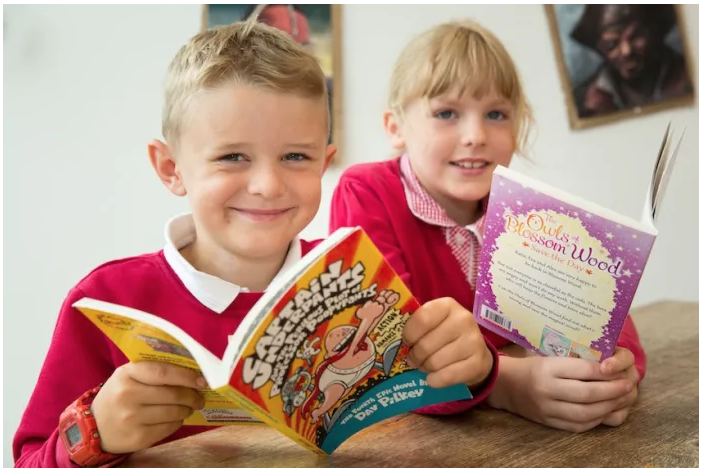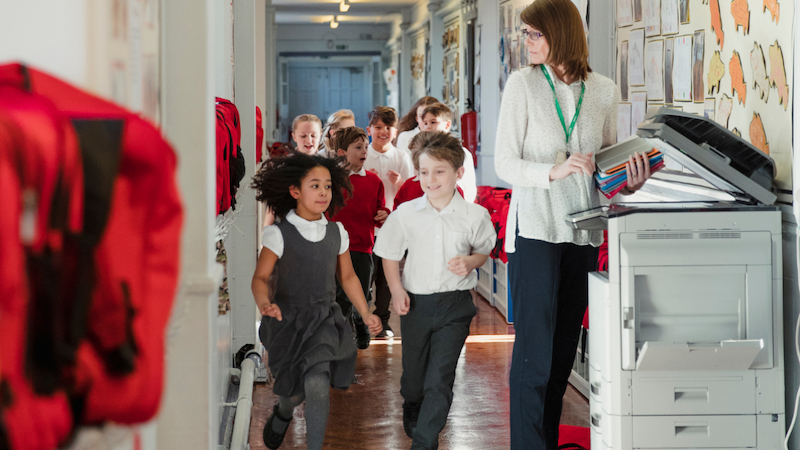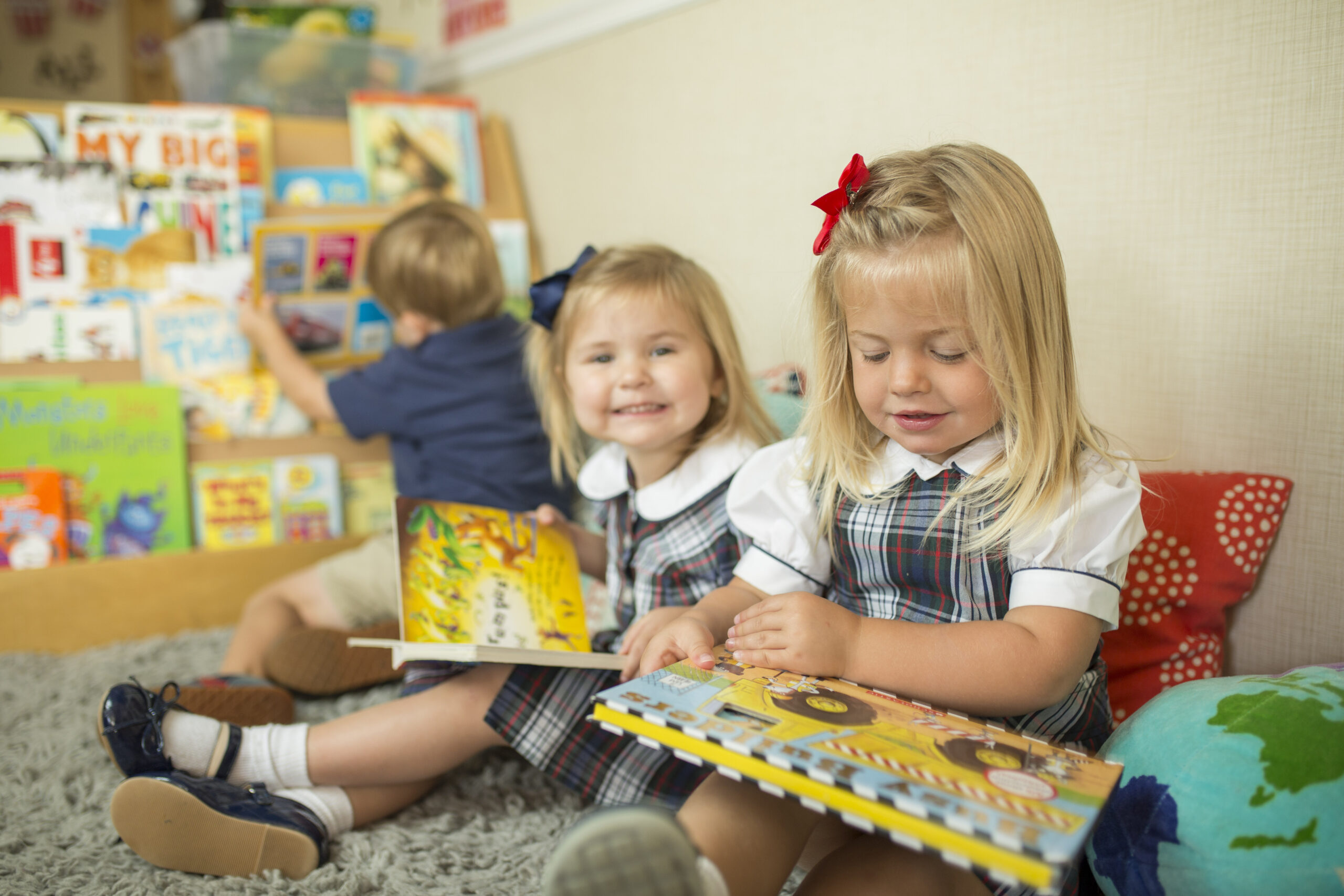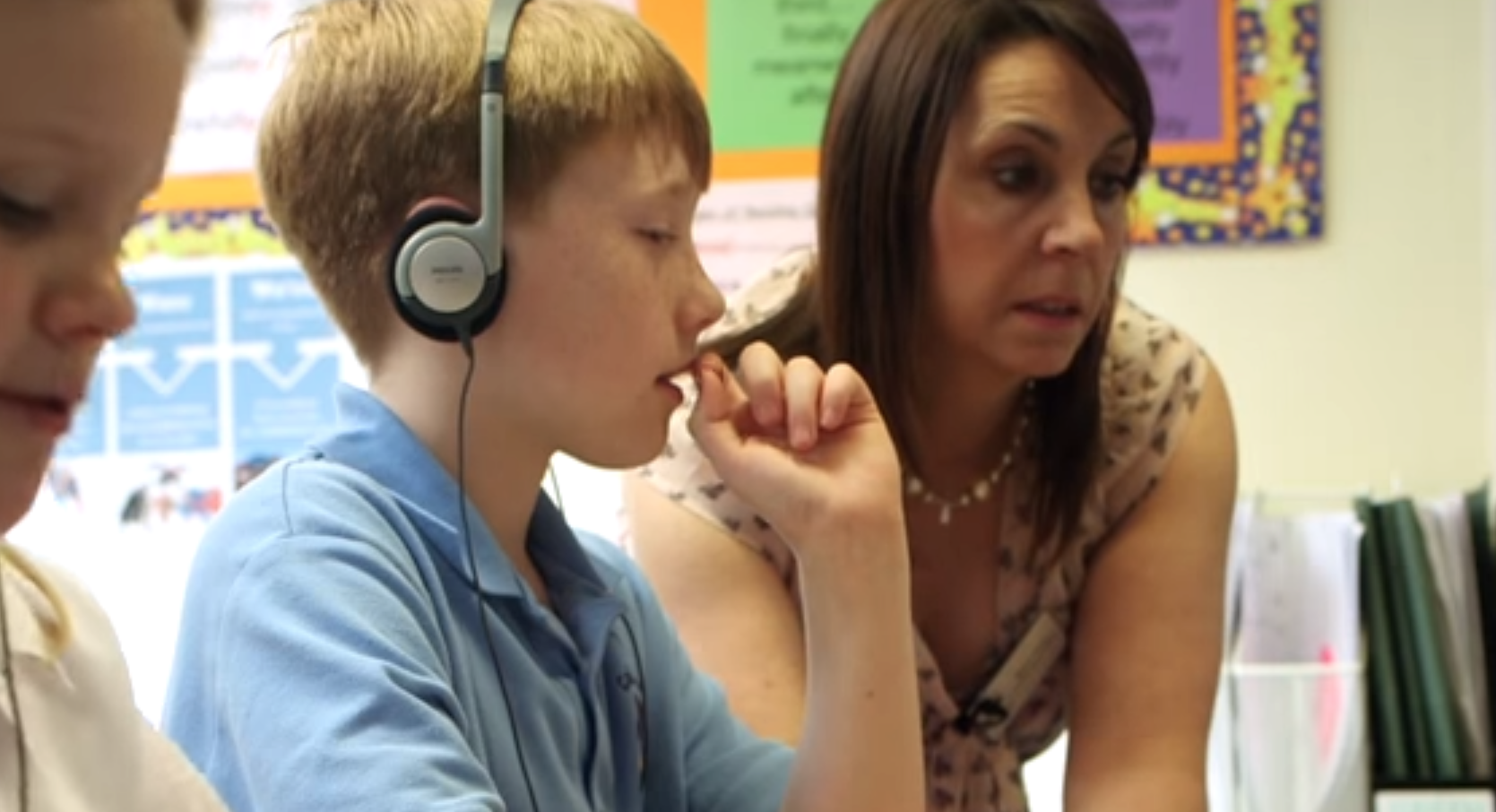“Struggling readers at Calmore Junior have made ‘phenomenal’ progress thanks to ReadingWise.” Lisa Marshall, Headteacher
ReadingWise was trialled in late 2014 and early 2015 at Calmore Junior School. Rhonda, a TA, worked with groups of 10 learners in daily 20 - 30-minute sessions. The impact was significant with several impressive results including one learner making 1 year and 9 months progress. Calmore is now committed to using ReadingWise English with their struggling readers over the coming years.
To examine heightened experiences when using technology and associated learning improvements. The essential purpose of the ReadingWise programme is not simply to increase reading age but to enhance self-confidence and self-efficacy. The four key components of Flow – control, attention, curiosity, and intrinsic interest – can be used as a tool to measure these effects.
Below, headteacher Lisa Marshall and teaching assistant Rhonda Penny describe their experience and deliver their verdicts.
The Headteacher’s View
Lisa Marshall is the headteacher of Calmore Junior School, Calmore, Southampton.
What attracted you to the ReadingWise programme?
We had a number of struggling readers and had tried various interventions and for some children, some of them just hadn’t worked at all. We want all our children to get to a nationally expected level when they leave us at the end of key stage 2 and we will try anything to achieve that.
When we were asked if we would like to be part of the ReadingWise pilot, I said yes straight away because it sounded like something different; something that would motivate the children and help those who just weren’t moving forward in reading.
How did you decide which children to select for the programme and why?
We just looked at the data, right the way from Year 3 to Year 6, and didn’t really look at age. We prioritised those children that hadn’t moved for a while and were basically stuck in reading. We have run the programme now with two groups of ten, each with children from Years 3 to Year 6.

What has the impact of ReadingWise been?
It’s had a variety of impacts. In terms of reading ages, we have seen on average an improvement of eight months over a period of two and a half months. One child gained 1 year and 9 months, another gained 1 year and 7 months and a third gained 1 year and 3 months. That’s an incredible improvement.
Most of them have made one sub-level in national curriculum terms so that is also good. But it has had a wider impact too. The children who did the programme are more confident, they have a more positive attitude to reading. Some of them are going home and reading every night and some of them are seeing themselves as readers. So the impact has been very good.
What do you particularly like about the ReadingWise literacy intervention programme?
Children who are struggling in reading need repetition and overlearning and ReadingWise is perfect for this. One of the reasons why I think the programme is so good is that when they are learning new words they are asked to ‘say the word’, ‘sing the word’, ‘act the word’ and ‘read it backwards’. By doing so, it uses a whole range of senses which helps children instil the learning into their long-term memory.
Do the children enjoy it?
Yes, they do. They like the challenge, particularly the boys. Some of the children said they liked it when they had to spell words backward because that was silly and it made it good fun. They also liked the clapping at the end of each part, particularly the Simpsons.
How does it compare with other reading intervention programmes?
Some of the other reading intervention programmes do the same activities every day and that’s not always the most motivating of experiences. With this programme the children like the range of different activities and they like the challenge as well, particularly the boys who like getting to the next level – that was a real motivating factor for them. They like it because they are not just doing the same thing every day.

What else do you like about ReadingWise?
I also like it because it’s an online programme. Children are much more skilled than we are at being online and navigating websites and programmes. So they have got that skill base and confidence that they can bring when using the ReadingWise programme. That really helps to motivate them.
Any other benefits from using ReadingWise in your primary school?
The other reason I like it is because you can run it with one teaching assistant to 10 children. Budgets are tight these days and every adult and every minute of their time is precious. So that makes it a very manageable resource.
So the ReadingWise programme can be led by a teaching assistant or learning support assistant?
Yes. It helps that we have a very skilled teaching assistant, who is very good at motivating and questioning children. As long as you have the right person it works very well.
What children would benefit from the ReadingWise programme?
We would recommend it for all struggling readers, not just those with learning difficulties but also those who for some reason or another have not done so well or have just got a bit stuck in reading. That includes children who might not have had a positive reading background and might not be reading at home. Those are the ones that have improved the most as a result of the ReadingWise programme.
Would you recommend the ReadingWise programme to other schools?
Yes, I would recommend the programme because it has had a very positive impact. When we saw the results it made us very proud. To see such a phenomenal impact from a programme that has been run for just ten weeks is wonderful.

The Teaching Assistants View
Rhonda Penny is a learning support assistant and higher-level teaching assistant (HLTA) at Calmore Junior School, Southampton.
What do you like about ReadingWise?
I like the fact that it uses a medium that the children already feel comfortable with. Children are naturally comfortable being online and using laptops. If you are a struggling reader you tend to be put off by books so using laptops (and tablet computers) probably feels better for them than sitting with yet another book that they are struggling to access.
Do the children enjoy the ReadingWise programme?
Most of the children thoroughly get into it. They engage with it. It’s right up their street to be able to jump up and shout something out, to be silly. It gives them an opportunity to do that while they are learning. If you’ve got to say a word backward and you sound like you are speaking Japanese, that’s all a bit of fun for them. It’s a tool that gets them thinking about the word and how it is spelled. Overall, they have really enjoyed it.
Do they like the technology aspects of it?
They do. I think because it is something that they know and feel confident with they settle into it really quickly.
How does ReadingWise compare with other reading programmes?
This has been something completely different. We haven’t tried anything like it before where everything is an online activity. It’s also great because we can target up to ten children with just one adult. That’s a real benefit for us because time is money.
What impact has it had on the children?
In the main, they are much more confident. They are a lot more able to break down a large unknown word and try and make sense of how it’s been made up. It’s given them a lot more confidence in both reading and writing. It’s also taken down some of the barriers that they had before to other lessons, particularly in maths. If you are going to do word problems and can’t read, you will struggle. So from that point of view, it’s not just the children’s reading and writing that has improved. There are other benefits too.
Is the ReadingWise programme easy for a teaching assistant (TA) to deliver?
It has been incredibly easy to deliver. As long as you have done the initial setup, the children just come in, they login, and they know exactly what to do. The programme itself delivers everything they need. They work at their own pace. Sometimes they don’t understand a word or don’t know how it’s used and that is something that we discuss as it comes up. They talk to each other and discuss it together. So the programme almost runs itself. You still need someone there to oversee the learning, but for the number of children who can do the programme in one go it’s been great.
How easy is it for the pupils to use?
The pupils find it very easy to use, partly because they do it at their own pace. It just takes you through to the next step when you are ready. I think they found it quite nice because they are not under pressure. It’s challenging, but they are not competing against anyone else. They just work through at their own pace.

Would you recommend the ReadingWise literacy intervention programme to other teaching assistants?
Yes. I think it’s very easy for a learning support assistant or teaching assistant to deliver. Once it’s set up it is simple enough. You just need the classroom space and the children and you’re set.
What level of support have you had from the ReadingWise team?
I have had great support from the ReadingWise team. I was in contact with them initially on a daily basis, sometimes more than once a day. They were very quick to come back with information and support. I feel I have never been left on my own to deal with any issues, so it’s been great.
Overall, what are your conclusions?
We have seen some great results. Some of the children have improved their reading age by well over a year in less than three months. To have a child improve their reading age by 1 year 9 months, which is our greatest improvement so far, is absolutely wonderful.
Almost every child’s reading age went up and we have had two children that made well over five times the average rate of progress. That’s an incredible result to have, something that we feel really good about because our job is to help the children. If we can see those results in even just a handful of children then it’s got to be worth the effort.
Work with ReadingWise to improve literacy results in your school
Take a look at our other case studies and testimonials from teachers, TAs, headteachers, and literacy leads at primary and secondary schools and multi-academy trusts (MATs).
ReadingWise offers four core modules, plus a comprehensive Learners Library, Teacher Training, and a Dashboard that you can integrate with other school software, and use to demonstrate attainment against the Pupil Premium Budget. Here is our pricing for more information.
Zip : Phonics for primary schools, reception, and Y1.
Vocab : A special vocabulary programme for learners aged 6 - 16, for primaries and secondaries.
Decoding : A comprehensive module for learners with a reading age below their chronological age irrespective of key stage.
Comprehension : A powerful, engaging, and fun literacy intervention module to develop the quest for meaning behind a narrative. Its content, structure, and design deliver age-appropriate sessions for Primary and Secondary schools Years 5-9.
Over 100,000 pupils in UK schools have completed a ReadingWise programme! We hope to help you and your children, too.
“ReadingWise is really good value for money. We have seen it as being a highly effective intervention that offers personalised learning to large numbers of children and has a measurable impact in a short amount of time.” Jenny Taylor, Headteacher, Horfield Primary School, Bristol - 85% pass in 2016 reading SATs
Boost your school's literacy results: Arrange your 20-minute demo at a time to suit you.
Find out everything you need to know about ReadingWise with our friendly, knowledgeable team.








